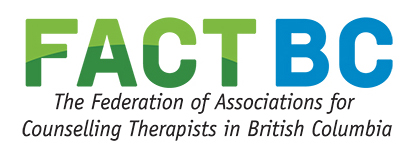Regulation in BC
Learn more about recent developments in regulation of counselling therapists / psychotherapists: FACTBC 2024 Year in Review.
In British Columbia, counselling therapists / psychotherapists are not regulated by a government authority.
When a government authority oversees healthcare professionals to ensure they are competent to perform their jobs safely and ethically, this protects you from incompetent practitioners who may take advantage.
While most counsellors and mental health therapists in BC are currently registered with a professional association, there are many who are not and practitioners are not required to be part of a professional association.
Read more on the difference between a regulatory college and a professional association »
The lack of government regulation in BC can lead to unethical or harmful practice which in turn can harm the very people they are trying to help.
What is government regulation?
Government regulation occurs when the provincial government grants certain rights and responsibilities to a profession through legislation in exchange for the profession regulating its members in the public interest. Once a provincial government regulates a profession, the College for that profession becomes the regulatory body that oversees the following professional functions:
- Setting entry-to-practice requirements that applicants must meet to become eligible for registration, competency-based examinations, supervision reports, and evidence of training and practical (practicum, internship) experience in the profession;
- Establishing an ethical code and practice standards to regulate how registrants conduct themselves in their practice;
- Requiring that registrants hold appropriate professional liability insurance;
- Providing for the fair and timely investigation and resolution of public complaints, including procedures for formal disciplinary hearings;
- Encouraging registrants to participate in their own professional development by requiring ongoing evidence of professional activities such as continuing education, in-service supervision, and upgrades;
- Supporting the designated protected title(s) granted to registrants to ensure that all users of the title have the designated competencies. Thus, the public can rely on the title to indicate both competency and accountability.
Regulation will result in:
- A competency-based regulatory structure including both entry-to-practice and continuing competency requirements.
- A rigorous code for ethical conduct.
- Effective and enforceable standards of practice.
- A regulatory body which ensures public safety through transparent and effective oversight of registrants.
- A college that exists only for the public interest.
